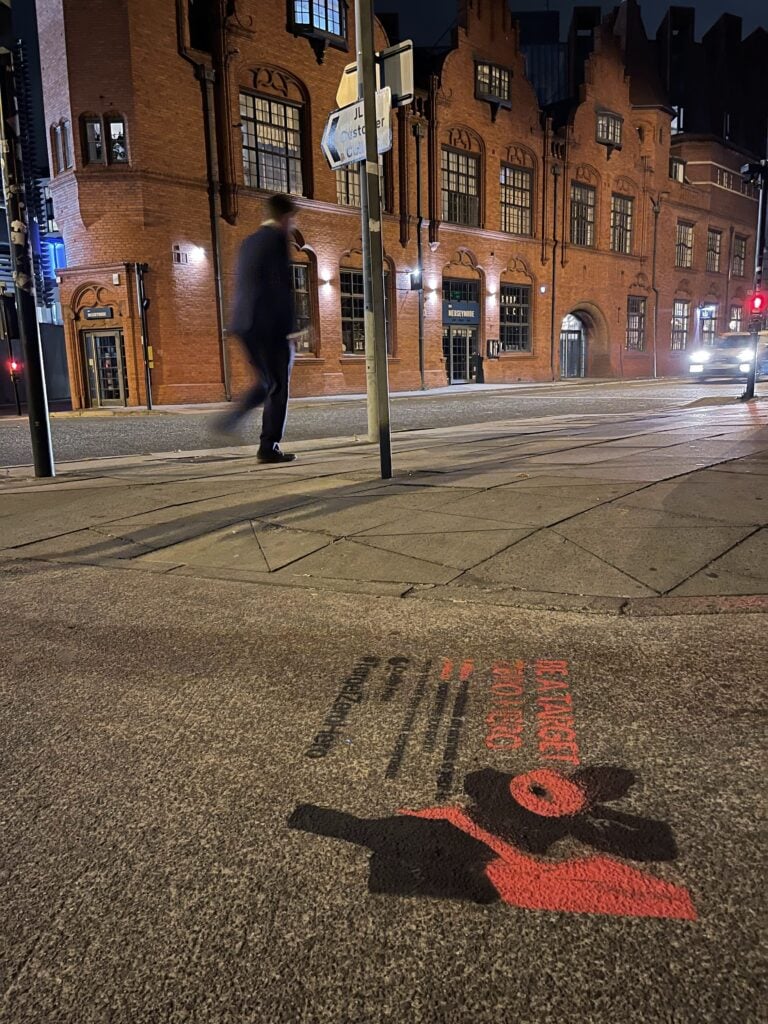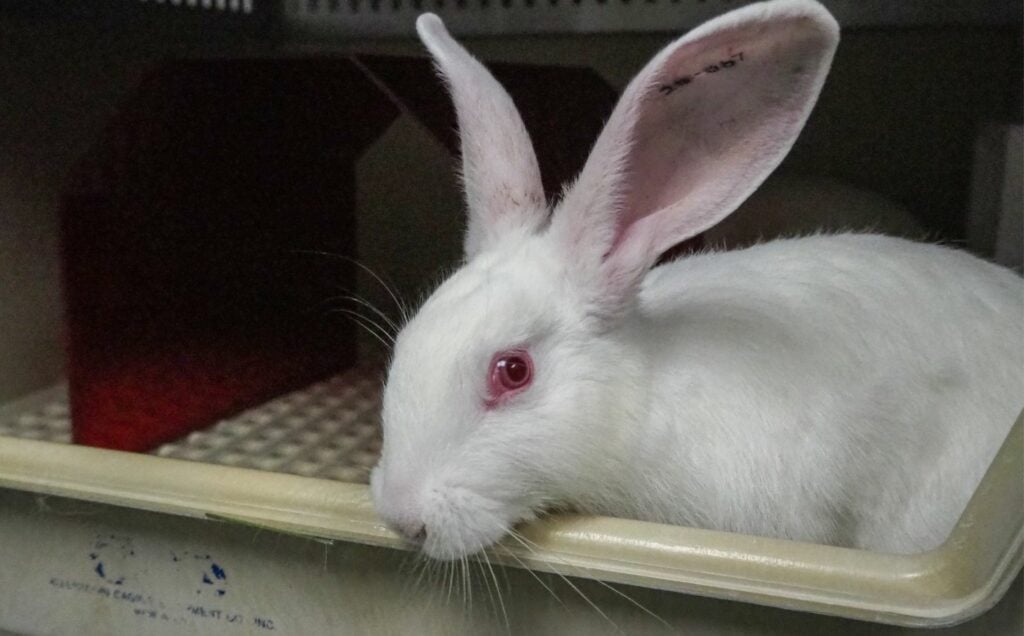The UK’s Labour Party is being urged to make ending animal tests part of its manifesto.
The left-leaning main opposition party was greeted with a number of murals from Cruelty Free International (CFI) when it held its annual party conference in Liverpool this week.
CFI, the leading organization working to end animal experiments in the UK and worldwide, created chalk artworks in 20 prominent locations in the city.
The murals called on Labour to commit to listening to public opinion and support a plan to actively replace animal experiments with modern, human-relevant science.

“Cruelty Free International is calling on not just the Labour Party but all political parties to commit to a cross-departmental strategy to accelerate the transition to animal-free testing and research,” Kerry Postlewhite, Director of Government & Regulatory Affairs at Cruelty Free International, told Plant Based News (PBN).
“Obviously, we’d love to see the current government step up and take the lead – and we have been lobbying them to put in place a minister dedicated to overseeing this.”
Animal experiments in the UK
Despite the fact that animal testing is a hugely controversial practice among the general public, with 65 percent in favor of phasing it out, it remains prevalent.
In fact, the UK has the highest number of experiments on animals in Europe.
Animal testing is permitted if the benefits to humans are found to outweigh the suffering of the animals. According to Animal Aid, this means things like food additives, weapons, tobacco material, and alcohol can all be tested.
While animal testing for finished cosmetics is illegal, medical animal testing for pharmaceuticals remains a legal requirement.
All new drugs must be tested on two animals, a rodent and a non-rodent. Animals used in tests include mice, rats, dogs, monkeys, pigs, horses, rabbits, and more.
According to CFI, there was a six percent increase in procedures conducted on animals in Great Britain from 2020 to 2021. Last year saw a staggering three million of these procedures take place.
There have been some small improvements, however.
Last year saw a 24 percent decrease in regulatory tests, which are legally required tests conducted on products like chemicals and medicines. In these tests, animals are forced to ingest or inhale substances or have them applied to their skin or injected into their bodies.
There was also, for the first time, zero eye irritation tests conducted on animals, which CFI described as a “fantastic result.”
“However, none of this is enough,” Postlewhite added. “Decision-makers say they want to reduce our reliance on animals. They need to put their plans and their money where their mouths are. We desperately need an ambitious and concerted strategy to drive reduction and replacement and a shift in funding away from animal-based science to animal-free science.”
What happens to animals used in testing?
The UK government defines animal tests as a procedure that is “likely to cause… pain, suffering, distress, or lasting harm.”
While the Animal (Scientific Procedures) Act 1986 supposedly regulates the industry of animal testing, this means very little in practice.
People conducting scientific studies on animals often operate under a veil of secrecy, with almost no chance of being reprimanded for animal abuse.
According to Animal Aid, no researcher has ever been prosecuted under the act. This is despite investigations showing dogs being punched and researchers laughing as they smashed mice against benches, for example.
What are the alternatives to animal testing?
There are an ever-growing number of alternatives to animal testing, and these often yield far more accurate results.
“Replacing animal tests does not mean putting human patients at risk,” CFI states on its website. “It also does not mean halting medical progress. Instead, replacing animals used in testing will improve the quality as well as the humanity of our science.”
Alternatives include human tissues, cell cultures, computer models, and volunteer studies.
Animal experiments have frequently been shown to yield inaccurate results due to the innate biological differences between human and non-human animals. For example, the link between smoking and lung cancer was found first in humans because tobacco didn’t cause illness in animals, says Animal Aid.
PBN reached out to the Labour Party to find out more about whether it would pledge to end animal experiments, but the party did not immediately respond for comment. CFI said that while it hasn’t yet had a response from the party either, it is “looking forward to hearing its plans.”






